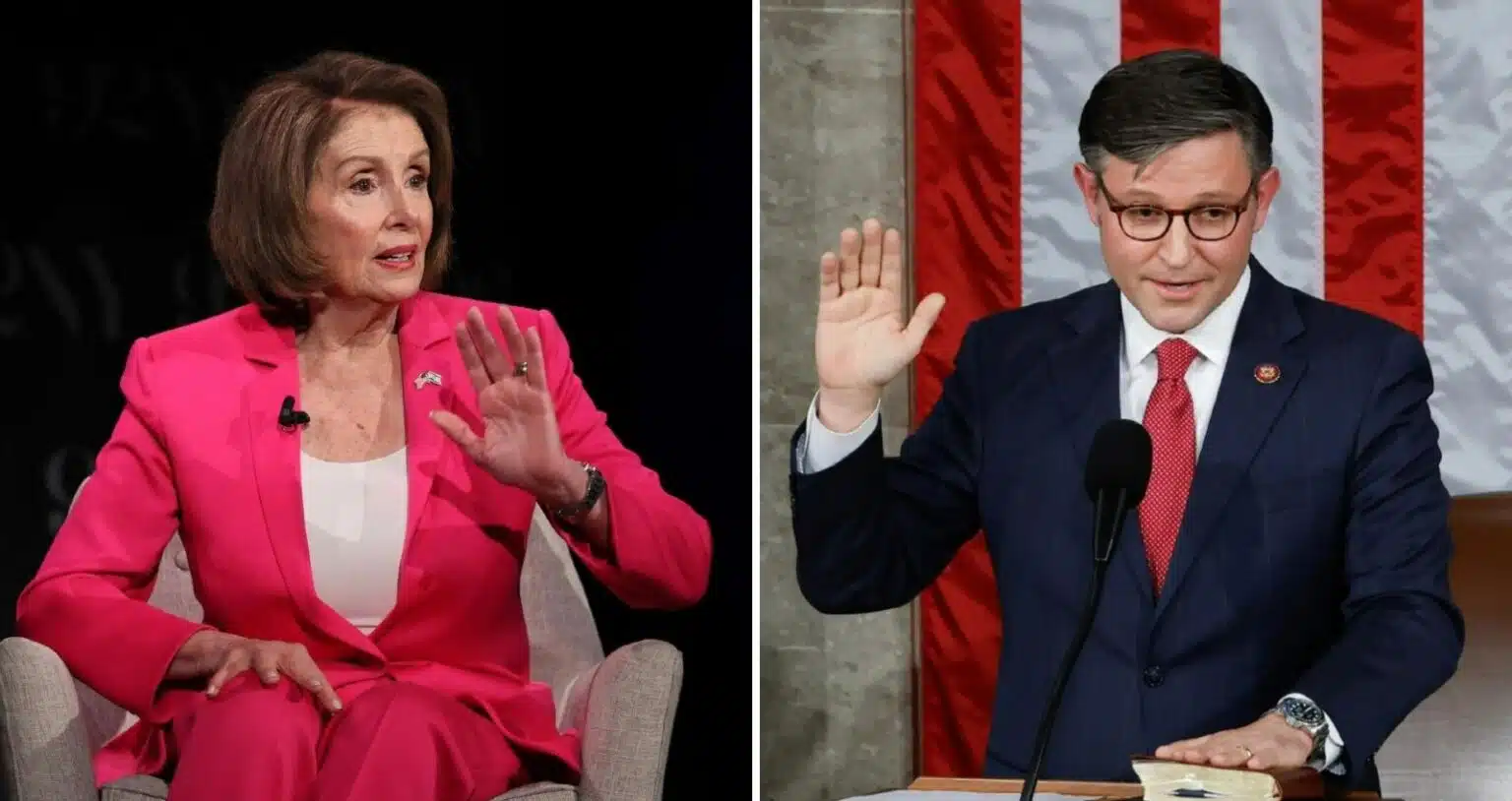House Speaker Mike Johnson has introduced a two-step plan to keep the federal government open, a move that could significantly impact budget negotiations in Congress. Known as the “Further Continuing Appropriations and Other Extensions Act of 2024,” the proposal extends funding in phases, with most government funding expiring on February 2 and some expiring on January 19. This approach would require the House and Senate to negotiate 12 separate funding bills rather than passing a single omnibus package.
Under Johnson’s plan, essential government agencies and programs that rely on regular appropriations must be funded by January 19. These include departments overseeing agriculture, rural development, the Food and Drug Administration (FDA), transportation, housing, and urban development. Meanwhile, other government programs have longer funding deadlines, with some stretching into late 2024. For example, the Agriculture Improvement Act of 2018 has a funding deadline of September 30, 2024.
Johnson, a staunch fiscal conservative, framed his plan as a strategic effort to secure “conservative victories” by prioritizing fiscal responsibility and key policy changes, particularly regarding the ongoing crisis at the U.S.-Mexico border and financial aid to Ukraine.
“This two-step continuing resolution is a necessary bill to place House Republicans in the best position to fight for conservative victories,” Johnson said in a statement. “The bill will stop the absurd holiday-season omnibus tradition of massive, loaded-up spending bills introduced right before the Christmas recess. Separating the CR from the supplemental funding debates places our conference in the best position to fight for fiscal responsibility, oversight over Ukraine aid, and meaningful policy changes at our southern border.”
Senate Democrats Oppose Johnson’s Funding Plan
The House’s proposal excludes funding for Ukraine and Israel, arguing that the House has already approved a separate plan allocating $14.5 billion in emergency aid to Israel following the October 7 Hamas terrorist attack.
However, Senate Democrats are not expected to support Johnson’s funding bill. Critics argue that his proposal is unnecessarily complex and could lead to further gridlock.
“We are going to pass a clean short-term CR. The only question is whether we do it stupidly and catastrophically or we do it like adults. There’s nothing inherently conservative about making simple things super convoluted, and all of this nonsense costs taxpayer money,” said Democratic Sen. Brian Schatz of Hawaii.
Speaker Johnson’s Finances Come Under Scrutiny
As the spending debate continues, Speaker Johnson has drawn attention for his personal financial situation, which stands in stark contrast to his recent predecessors. Unlike previous House speakers, who amassed significant wealth and held extensive stock portfolios, Johnson reported minimal assets and no stock investments in his most recent financial disclosure report.
Johnson’s 2023 disclosure, filed in August, shows that he has only three debts:
- A home mortgage of up to $500,000 (since 2013)
- A personal loan of up to $50,000 (since 2016)
- A home equity line of credit of up to $50,000 (since 2019)
Ethics Experts Weigh In on Johnson’s Financial Transparency
Government ethics experts have noted that it is highly unusual for a sitting member of Congress not to disclose any bank accounts or personal investments.
“It’s very unusual for a member not to have to disclose at least one bank account,” said Brett Kappel, a government ethics expert at Harmon Curran.
Similarly, Jordan Libowitz, another ethics expert, described Johnson’s financial disclosure as “strange” and warned that his lack of assets could make him “ripe for influence buying.”
Republicans Defend Johnson Amid Democratic Criticism
Conservatives have defended Johnson against Democratic attacks, arguing that his financial situation makes him more relatable to the average American voter.
“For years, we’ve heard calls and demands for members of Congress to look more like the people they represent,” said Rep. Kat Cammack (R-Fla.), a close Johnson ally. “Today, we have a Speaker who is not independently wealthy, who does not own or trade stocks and, per House financial reporting disclosures rules, is not required to disclose his federal employee retirement funds.”
Cammack also took aim at former House Speaker Nancy Pelosi, who is known for her multimillion-dollar stock holdings.
“It’s clear now with Speaker Johnson at the helm that the People’s House is run by just that — a man of the people. I find it deeply hypocritical that Democrats and the leftist media are upset about Speaker Johnson when their own former Speaker Nancy Pelosi is a multimillionaire.”
Pelosi’s Massive Stock Portfolio Sparks New Debate
Pelosi’s financial disclosures reveal that she holds millions of dollars in stocks, with investments in major corporations like:
- Amazon
- Apple
- Microsoft
- Netflix
- Disney
According to Open Secrets, Pelosi’s net worth exceeds $100 million, and she has reported several million-dollar stock transactions in recent years.
This level of investment activity led Sen. Josh Hawley (R-Mo.) to introduce the Preventing Elected Leaders from Owning Securities and Investments (PELOSI) Act. The legislation seeks to ban members of Congress and their spouses from owning or trading individual stocks, arguing that such financial interests create conflicts of interest.
The Road Ahead: Will Johnson’s Plan Succeed?
As the government funding deadline looms, Speaker Johnson faces an uphill battle in securing bipartisan support for his two-step resolution plan. While Republicans argue that his proposal will end wasteful spending and restore fiscal discipline, Democrats view it as an unnecessary complication that could lead to further instability.
With Senate opposition growing and bipartisan tensions rising, the outcome of Johnson’s funding strategy could have far-reaching consequences for both Congress and the 2024 elections.
